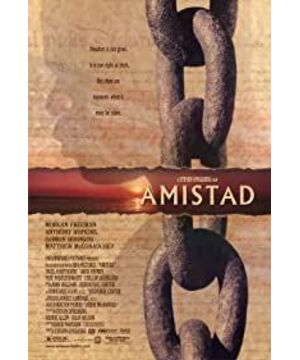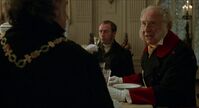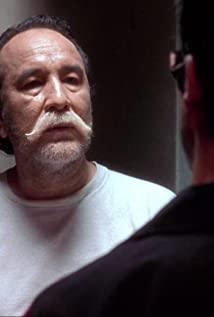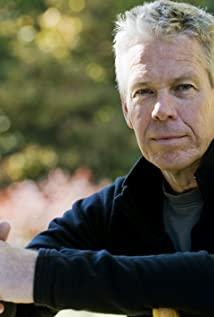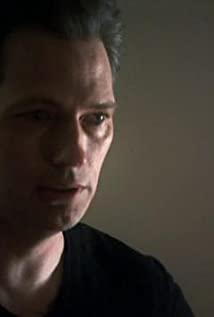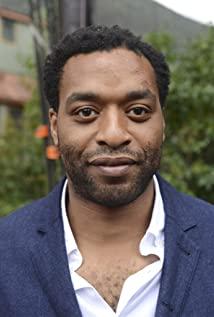Or Hopkins. Still a true story.
The title of the film is actually "Amistad," which is the name of a slave ship. We like to learn from Hong Kong and Taiwan these days, and we randomly put up a sensational and eye-catching name to increase the box office. In fact, we don't have any performances here.
The story is about 1839. On the Spanish slave ship "Amistad", the slave leader Zink took the lead in the rebellion and controlled the whole ship by force. 53 Africans have been charged with the murder of the crew. The young lawyer Baldwin proved that these blacks were from Africa , and slave smuggling was illegal at the time, so he was acquitted in court. But later, people representing the conservative forces in the South appealed the case to the Supreme Court. The two opposing political forces wanted to use this case to compete. Former US President Quincy Adams went out in person to calmly state freedom, equality and fraternity in court. The foundation of the founding of the United States, for the already disadvantaged black slaves, they have won the same natural human rights as all whites - freedom!
The film takes us to America more than 170 years ago. Although we can't demand the high level of consciousness of the people at that time, in this country that claims to be free and equal, the low level of people's morality is still surprising. Although smuggling black slaves is illegal, black slaves can be bought and sold "legally", and black slaves can be used freely as long as there is money. Smuggling is illegal only because it affects the profits of the "legal" black slave trade and causes market chaos.
Negroes were captured and trafficked like livestock and brutally abused. Because the supply of water and food on the slave ship was tight, the owner of the ship actually threw 50 black slaves into the sea!
In the opening court debate, the prosecution's purpose was to prove that the black slaves were "goods" from Spain, while the defense wanted to prove that the black slaves were illegally smuggled. Lengthy debates, back and forth, elegant and rational, circling in circles in cold legal texts. At this time, we saw that the black slave leader Zink stood up and shouted out in anger in the English he had just learned: "Give us freedom!" His voice shook the entire hall.
The judge was immediately confused. In desperation, he turned to Jesus for help. Somewhere, Jesus instructed the judge: You must let these black slaves go! The judge had to study the legal provisions overnight, thinking hard. The final verdict is: these black slaves are smuggled, so they are not "property", but free men, and they are released in court. Although far-fetched, the slaves were freed.
However, after wave after wave, the southern slaveholders quit, threatening to start a civil war in front of the president. The president appealed to the Supreme Court to reopen the case for national stability and re-election.
Hopkins played the former president of the United States, Quincy Adams. Not many scenes, but very important. At critical moments, he acted as the defender of the slaves. Grand appearance.
Adams and Zink had a conversation the night before going to court.
Adams: We're going to fight a lion that could tear our country in two. What do you think?
Zink: I will go back to the distant past and ask our ancestors for help. Because in this moment, I am their whole meaning, and they are bound to come.
Adams: We are not alone, the truth is on our side and we have justice.
On the Supreme Court, Adams calmly began his statement before nine justices, seven of whom were slave owners. From time to time, I walked to the statues of Washington, Hamilton, Jefferson, these American sages, and stared and stroked affectionately. In the end, he looked at the "Declaration of Independence" hanging above the court, and said loudly: "The focus of the argument in this case is human nature. We have realized, and have to realize, who are we? Our Who is the ancestor? All men are created equal and have the right to live liberty. My view of human nature is liberty. If it means civil war, let him come! I hope this will be the last battle of the American Revolution. "
At the end of the film, the slave wins. The slave trade base was destroyed and the slaves returned home. What remains is our thinking.
In today's society, human beings are making progress, people's thinking logic is becoming more and more rational, and they are trying to get rid of ignorance and ignorance. But at the same time of progress, it is farther and farther away from human nature. Today, the cement city is reasonable and legal, it is reasonable and legal to fight for power and profit, and it is reasonable and legal to take advantage of others. ....
However, after all this reasonable and legitimate thinking, do you think about it: what about your traditions? Where is your conscience? what about your nature?
In any era, maintaining human nature is the most important thing, and reason serves human nature.
My rating: 8.0
View more about Amistad reviews


